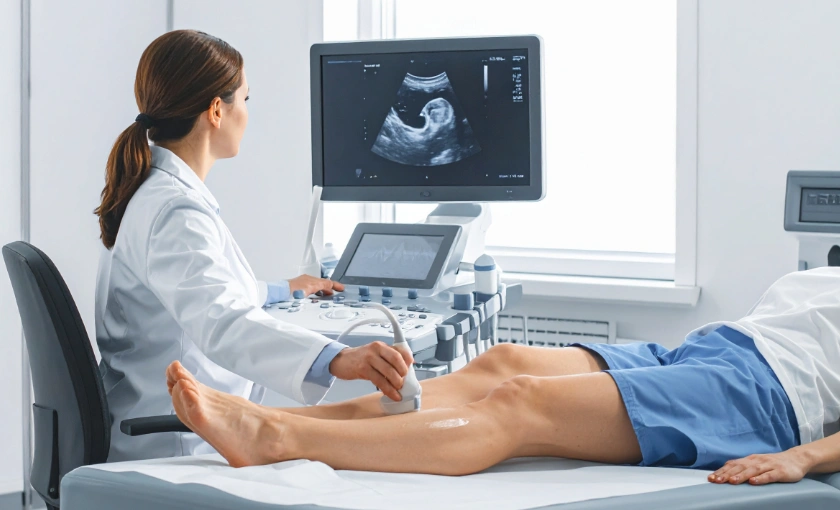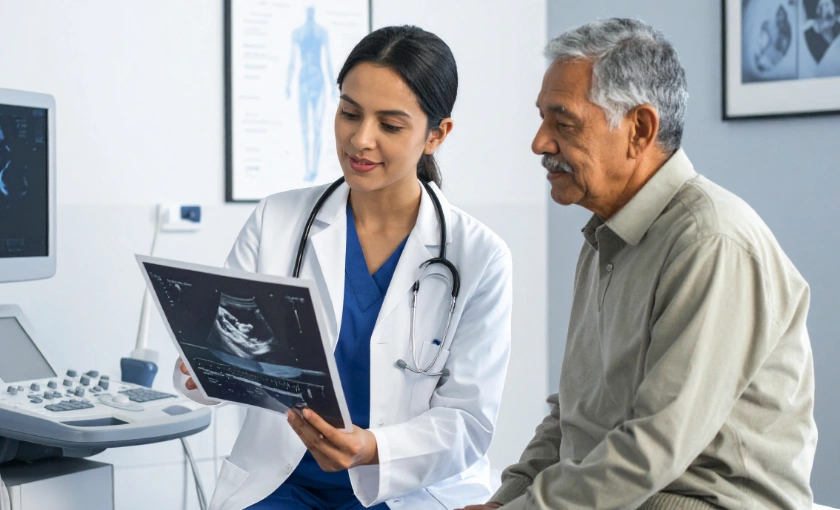Healthy Veins, Healthy Life: Tips from Dr. Jennifer Avise

Your veins play a vital role in maintaining whole-body health by carrying blood back to the heart. Yet vein health is often overlooked—even though venous disease affects nearly 1 in 3 adults over age 45. In this guide, Dr. Jennifer Avise shares expert insights on how to maintain healthy veins, prevent vein problems, and improve your overall circulation and quality of life.
What Is Vein Health?
Veins are responsible for returning deoxygenated blood to the heart. To do this efficiently, your veins rely on tiny one-way valves that open to push blood upward and close to prevent it from flowing backward. When these valves weaken or fail, blood pools in the legs, leading to discomfort and venous conditions.
Healthy veins keep blood moving smoothly and prevent pressure buildup in the lower extremities. Poor vein health can lead to painful or serious complications if left untreated.
Common Vein Problems
Varicose Veins
Enlarged, twisted veins that appear beneath the skin—often painful, heavy, itchy, or throbbing.
Spider Veins
Small red, blue, or purple veins that spread close to the skin surface.
Chronic Venous Insufficiency (CVI)
A long-term condition where weakened valves prevent blood from flowing back to the heart, causing swelling, skin changes, and discomfort.
Deep Vein Thrombosis (DVT)
A dangerous blood clot forming in the deep veins of the legs. A clot can break off and cause a potentially life-threatening pulmonary embolism.
Risk Factors for Vein Conditions
Certain factors increase the likelihood of developing vein disease:
- Age: Veins lose elasticity over time.
- Genetics: Family history greatly raises risk.
- Pregnancy & Hormonal Changes: Can relax vein walls and increase pressure.
- Sedentary Lifestyle: Poor circulation leads to valve strain.
- Prolonged Sitting or Standing: Common in many jobs.
- Obesity: Extra weight increases venous pressure.
- Gender: Women are nearly twice as likely to develop varicose veins.
According to data, 22 million women and 11 million men aged 40–80 in the U.S. have varicose veins.
Tips for Maintaining Healthy Veins
Dr. Avise recommends the following evidence-based strategies:
1. Stay Physically Active
Exercise improves circulation and prevents blood from pooling in your legs. Even low-impact activities like walking, swimming, or cycling strengthen calf muscles—the “natural pumps” of your veins.
The American Heart Association recommends 30 minutes of moderate exercise, 5 days a week.
2. Eat a Vein-Healthy Diet
A balanced diet supports strong, resilient blood vessels. Focus on:
- Fiber-rich foods
- Fruits and vegetables packed with antioxidants
- Lean proteins
- Adequate hydration
Water helps keep blood from thickening, reducing clot risks and improving flow.
3. Maintain a Healthy Weight
Excess weight increases pressure on your leg veins. Weight loss can:
- Reduce swelling
- Improve circulation
- Prevent varicose vein progression
Combining healthy eating and regular activity is the best long-term strategy.
4. Avoid Prolonged Sitting or Standing
Staying in one position increases pressure in your veins.
Try:
- Standing and walking every hour
- Flexing your ankles while sitting
- Elevating legs during breaks
These simple habits reduce venous strain significantly.
5. Wear Compression Stockings
Compression garments:
- Improve venous return
- Reduce swelling
- Help prevent blood pooling
They are especially helpful for people with varicose veins, long work shifts, or chronic venous insufficiency.
6. Choose Loose, Comfortable Clothing
Tight clothing around the waist, thighs, or calves restricts circulation. Opt for breathable, non-restrictive fabrics to allow proper blood flow.
Professional Vein Care & When to See a Specialist
If you experience:
- Persistent leg swelling
- Pain, heaviness, or fatigue
- Visible varicose veins
- Restless legs
- Skin discoloration
…it’s time to consult a vein specialist. Early treatment prevents more serious complications like CVI or DVT.
Your vein specialist may perform:
- A physical exam
- An ultrasound
- A full vascular evaluation
This helps determine the best personalized treatment plan.
Treatment Options at BASS Vein Center
Sclerotherapy
Injects a solution into small varicose and spider veins to close and fade them.
Laser Treatment (EVLT)
Uses laser energy inside the vein to collapse and seal it shut.
Radiofrequency Ablation (RFA)
Uses radiofrequency heat to treat larger diseased veins with >90% success rates.
VenaSeal™ Adhesive Closure
Uses medical adhesive to seal the vein—no heat or tumescent anesthesia required.
Surgical Options
For advanced cases, vein stripping or ligation may be recommended.
Your provider will customize the right plan based on severity and symptoms.
Healthy Habits for Long-Term Vein Care
To protect your veins long-term:
- Quit smoking
- Manage stress
- Exercise regularly
- Stay hydrated
- Wear loose clothing
- Avoid long periods of inactivity
- Maintain a healthy weight
These habits strengthen circulation and reduce strain on your veins.
Take Control of Your Vein Health
If you’re experiencing symptoms or want proactive support for healthier veins, the specialists at BASS Vein Center are here to help. With advanced, minimally invasive treatments and compassionate care, we’re dedicated to helping you feel your best.
Schedule a consultation today and take your first step toward healthier veins and a healthier life.
FAQs
1. What are the first signs of vein problems?
Common early signs include swelling, heaviness, visible veins, itching, or aching in the legs.
2. Can varicose veins be prevented?
While genetics play a major role, staying active, maintaining a healthy weight, and wearing compression can help prevent worsening.
3. What lifestyle changes strengthen vein health?
Regular exercise, hydration, weight control, and avoiding long periods of sitting or standing are key.
4. When should I see a vein specialist?
Seek care if you have persistent pain, swelling, restless legs, skin changes, or visible varicose veins.
References
- American Heart Association. Exercise and Cardiovascular Health. https://www.ahajournals.org/doi/10.1161/01.cir.0000048890.59383.8d
- Annals of Phlebology. Chronic Venous Disease is a Progressive Disease that Requires Early Intervention. https://doi.org/10.37923/phle.2023.21.2.80
- National Blood Clot Alliance. DVT and PE Blood Clots. https://www.stoptheclot.org/learn_more/dvt-and-pe-blood-clots/
Note: Coverage varies between insurance plans. Please check with your insurance provider before scheduling. BASS Vein Center will verify your benefits so you understand any out-of-pocket costs ahead of treatment.
Medical Disclaimer: The information provided in this blog is for educational and informational purposes only and is not intended as medical advice, diagnosis, or treatment. BASS Medical Group does not endorse any specific tests, treatments, procedures, or opinions referenced in this content. Individual results may vary. Always consult with your physician or a qualified healthcare provider regarding any medical concerns or before making changes to your health regimen.




